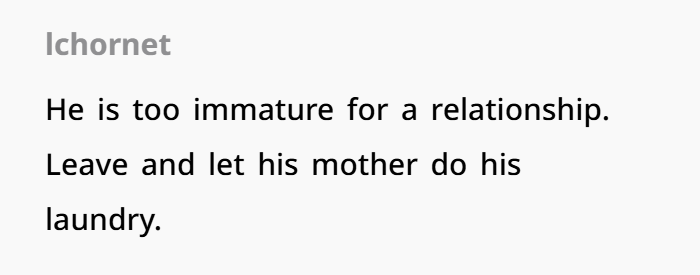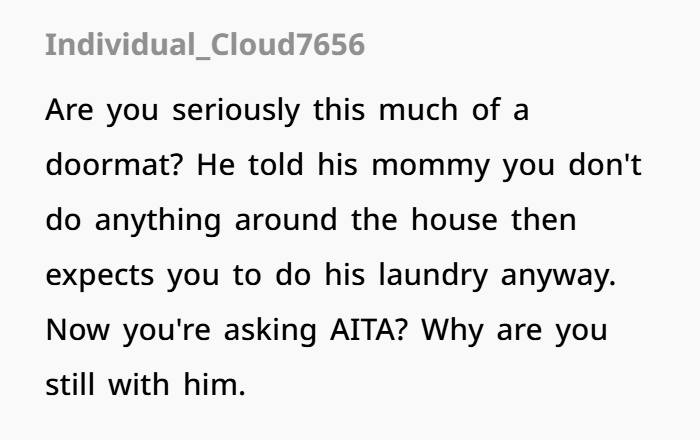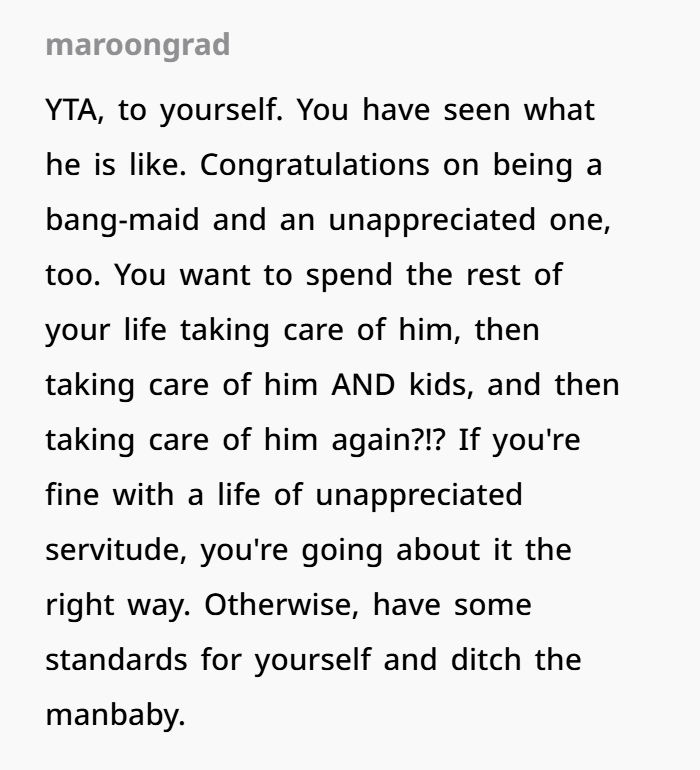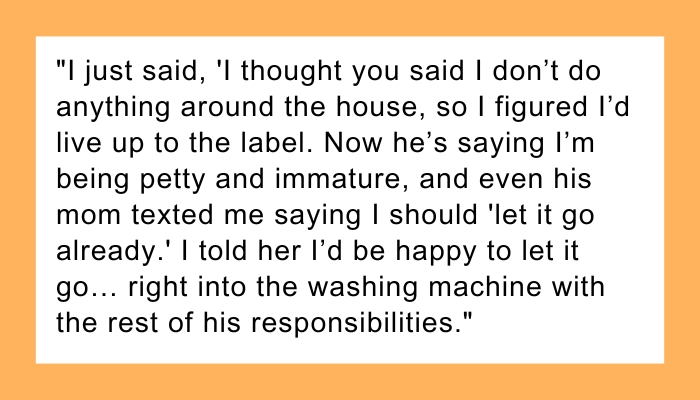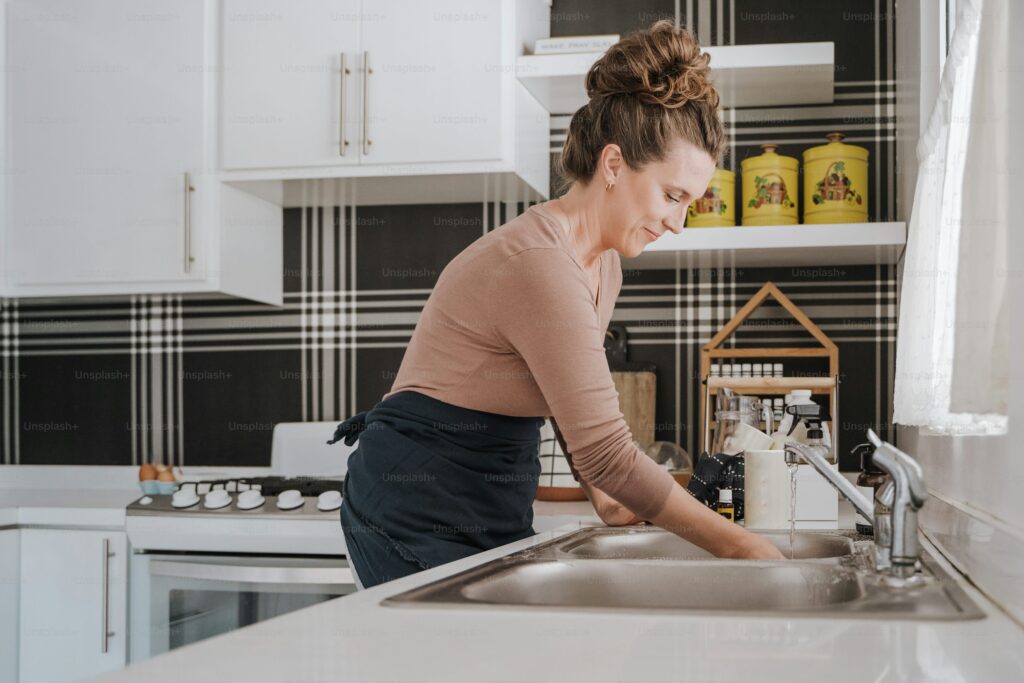Man Complains To His Mom About GF Being “Not The Domestic Type”, Gets A Dose Of Reality
Living with your partner can be exciting, but it also brings everyday challenges. Many couples face small but annoying issues like arguments over laundry, trash, or dirty dishes. These daily fights, if not managed, can grow into serious relationship problems.
That’s why having honest talks about household responsibilities is important. Deciding who does what and when helps avoid stress and keeps the relationship strong.
Recently, a woman posted online asking if she was wrong for stopping doing her boyfriend’s laundry. Her reason? He kept making backhanded comments about how she handled chores. Instead of ignoring it, she decided to stand up for herself.
This sparked a debate online about healthy communication in relationships and whether her decision was fair. We’ve messaged her for more details and will update this article if she replies.
If you’re facing similar issues, it may help to seek relationship advice or even consider couples counseling. Communication is key to a happy and peaceful home.
Read for more info Reddit
Chores can be time consuming and annoying, particularly if you are the only one doing them
So one woman decided to let her BF do his own laundry

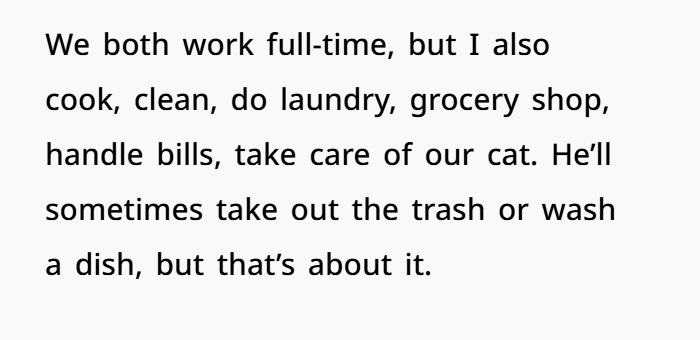
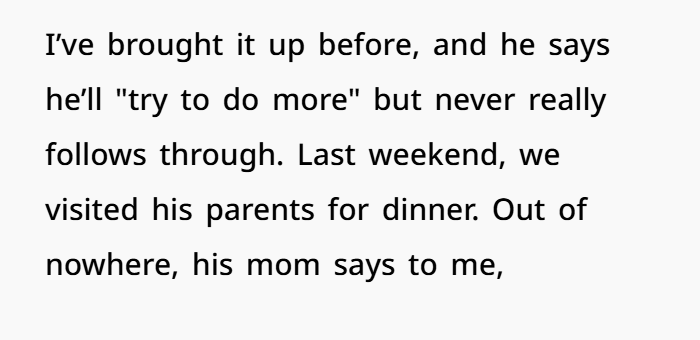


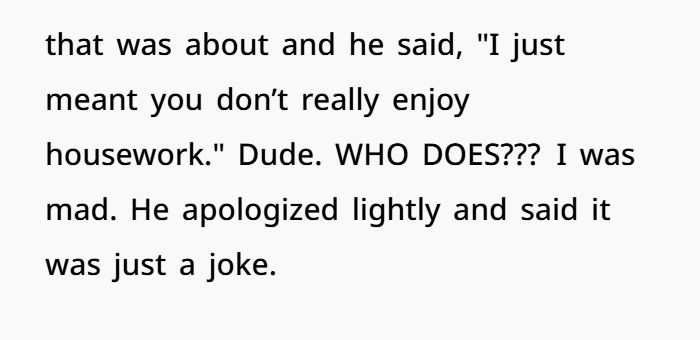

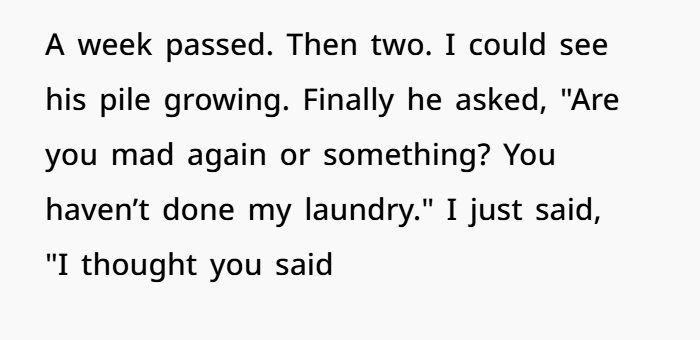
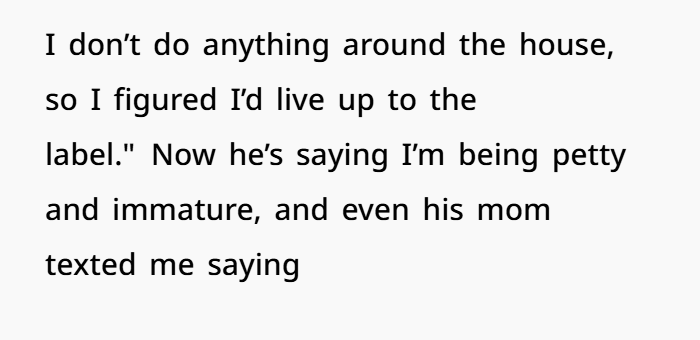
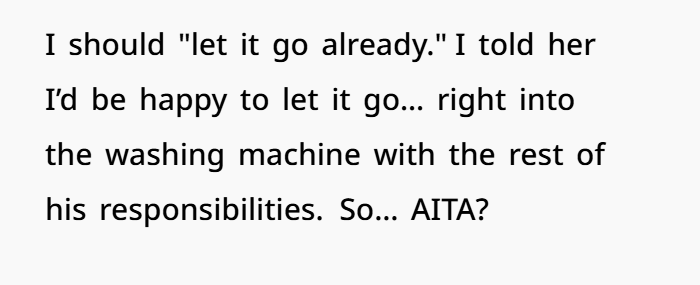
Taking care of a household is a lot of work
Some people avoid doing household chores — not because they can’t, but because of learned beliefs and outdated gender roles. They may think cleaning, cooking, or doing laundry isn’t “real work,” or that their partner is just “better at it.” The result? One person ends up doing most of the chores without thanks or support.
Of course, it’s hard to split every task exactly 50/50. Trying to make it perfectly equal can even lead to more arguments and relationship stress. But usually, one person (often the woman) takes on most of the work — and that’s a real problem.
This behavior is often shaped during childhood. Many boys grow up in homes where their moms do all the housework, and dads only help now and then. Over time, these boys learn that cleaning and organizing are “women’s work.” As adults, they expect their homes to stay clean on their own, without understanding the effort behind it. That leaves their partner juggling both the physical tasks and the job of teaching them how to help.
A bigger issue is something called the “mental load.” This includes the invisible tasks like planning meals, buying groceries, remembering appointments, and managing kids’ schedules. Even if a man does the dishes once a week, if he doesn’t help with this planning, his partner still carries most of the weight.
This invisible work can cause deep resentment. It’s not enough to “help out” once in a while — real support means being reliable and involved. If a woman can’t count on her partner, she ends up exhausted, both mentally and emotionally.
If this sounds familiar, it might be time to talk honestly with your partner or consider marriage counseling. Understanding and sharing the emotional labor and mental load is key to a fair, happy, and lasting relationship.
Some men need to just grow up and pick up a mop
In many relationships, one common excuse for not doing household chores is, “I just didn’t notice it needed doing.” But let’s be honest—if you can notice your smartphone battery is low or your car needs gas, you can definitely see when the trash is overflowing or the laundry basket is full.
This isn’t about ability. It’s about attention, shared responsibility, and respect in relationships. Living together means sharing both the space and the effort. Ignoring messes doesn’t make them disappear—it just pushes the work onto your partner.
In one viral story, a woman stopped doing her boyfriend’s laundry after he made passive-aggressive remarks about how she handled chores. Days later, he finally noticed that his dirty clothes were still piling up. This highlighted a bigger issue: he wasn’t contributing equally at home.
Experts often call this behavior “weaponized incompetence”—when someone pretends they don’t know how to do basic tasks just to avoid doing them. It’s not about being bad at cleaning. It’s about avoiding responsibility.
Relationships thrive when both people contribute—not just financially or emotionally, but practically too. Tasks like mopping the floor, cleaning the toilet, or doing the weekly grocery shopping aren’t exciting, but they are part of building a strong and respectful home.
Sadly, instead of taking accountability, the man in this story reportedly complained to his mother about the situation. That move didn’t go over well online. Many readers questioned why the woman was still in a relationship with someone who, even in his late 20s, hasn’t learned how to take care of himself.
Most thought she was absolutely in the right


